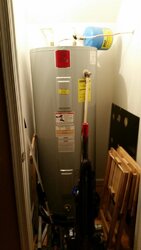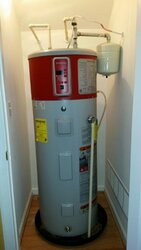Can't find the part number now....it was one that takes up two breaker slots in the main panel, with just an LED on each to show that its connected.
this is what I was looking at as well. Can I use 2 existing 20 amp single pole breakers for one of these surge protectors, or does it need its dedicated breakers? Is it even code installing it into existing breakers?
what are you thoughts on something like this?
http://www.amazon.com/Intermatic-IG...0&sr=8-1&keywords=whole+house+surge+protector
Last edited:





